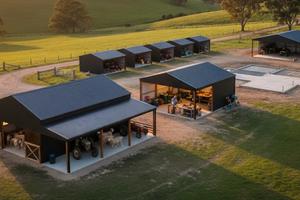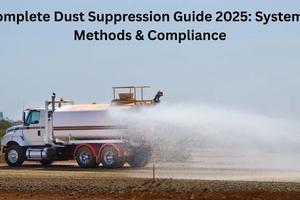Improving Concentration in Children: From Minimizing Distractions to Nutrition Tips That Boost Focus And Concentration

Key Takeaways
Essential insights to remember
Creating distraction-free environments significantly improves children's ability to focus on tasks
Regular physical activity and proper sleep enhance concentration and cognitive function in kids
Breaking tasks into manageable chunks prevents mental fatigue and builds concentration stamina
Mindfulness practices and stress management techniques help children develop better attention control
Nutrition choices and proper hydration directly impact a child's focus and learning capacity
Maintaining focus and concentration is a common challenge for children, especially in today's world filled with distractions. Children's concentration levels also vary greatly depending on their age, individual personalities and circumstances. As a parent or caretaker, being patient and implementing strategies tailored to your child's needs can go a long way in helping improve their concentration over time. This article explores effective techniques to try with children of all ages.
Eliminating Distractions
The first step towards better concentration is removing potential distractions from the environment. For young children, make sure the space where they play and do activities is free of screens, loud noises and excessive visual stimuli. For school-aged children, designate a quiet homework area without TV, phones or any other devices present.
When your child needs to concentrate, minimise disruptions. Let other family members know this is the time they need to focus. Gently redirect your child back to the task at hand if their attention drifts. However, be realistic about expecting young children under age six to concentrate for long periods. Take regular sensory breaks to get wiggles out.
Cultivating Focus Habits
Work on building your child's 'focus stamina' with fun activities that engage their attention. Reading together, doing puzzles, playing board games and following craft instructions all require concentration. Praise them when they persevere through challenges.
You can also directly teach focus strategies. For example, suggest closing their eyes, taking some deep breaths and visualising their task before starting when they feel distracted. Or have them put on noise-cancelling headphones and listen to calm music when concentrating. Establishing these habits early helps concentration.
Physical Activity and Rest
Physical activity and adequate rest are both essential for concentration. Schedule active time in your child's day to release pent-up energy. Team sports are great for older children as they combine focus with exercise. Just be sure young children get enough rest through 10+ hours of sleep nightly and daytime naps if needed. A well-rested brain can better sustain attention.
Managing Stress
High stress levels impede a child's ability to concentrate. If you have fostered a child with a fostering agency like activecaresolutions.co.uk, they may have additional stressors from past trauma. Work on identifying and managing sources of stress. Teach calming techniques like deep breathing, visualisation or yoga. Communicate openly and make time for bonding through activities you both enjoy. Seek professional help if stress seems unmanageable.
Educational Support
Learning difficulties like ADHD and dyslexia can significantly impact concentration. If your child struggles to focus in school for an extended period, raise this with their teacher and school. They can put interventions in place and recommend assessment if a specific learning difficulty is suspected. Getting the right educational support makes a major difference in helping children with additional needs concentrate.
Mindfulness and Brain Training Exercises for Better Focus
Daily mindfulness exercises specifically designed for improving concentration in children can transform their attention spans. Simple focusing techniques like guided breathing or child-friendly meditation apps help develop concentration skills and cognitive control. Even 5-minute focus training sessions can strengthen a young mind's ability to maintain attention during challenging tasks.
Concentration-Boosting Nutrition and Hydration Habits
A child's diet directly impacts their ability to focus and concentrate. Brain foods rich in omega-3 fatty acids, antioxidants, and protein significantly improve cognitive function and mental focus in children. Avoid sugary snacks that cause energy crashes and instead opt for concentration-enhancing foods like eggs, nuts, and berries. Proper hydration is equally essential, as even mild dehydration impairs a child's attention span and learning capacity.
Breaking Tasks Into Focus-Friendly Segments
Large assignments overwhelm children's developing concentration abilities. Teaching focus techniques like the Pomodoro method (working in 25-minute concentration blocks) helps children maintain mental focus without burnout. This structured approach to task management improves concentration in school-aged children by building their focus muscle gradually while preventing cognitive fatigue.
Visual Timers and Concentration Management Tools
Visual concentration aids help children understand time management and develop stronger focus habits. Time-tracking devices show children how long they need to maintain attention, improving focus awareness. Creating visual schedules helps children transition between activities while maintaining optimal concentration levels throughout the day, particularly beneficial for enhancing focus in children with attention difficulties.
Interest-Driven Focus Enhancement Activities
Children's concentration improves dramatically when learning connects to their interests. Concentration-building games and puzzles that incorporate a child's favorite themes make focus practice enjoyable. This approach to improving attention in young learners creates intrinsic motivation, leading to longer periods of sustained concentration and deeper engagement with educational material.
Digital Tools for Developing Concentration Skills
Select educational apps specifically designed for improving focus and concentration in children of various ages. Digital concentration training programs can effectively strengthen working memory, attention span, and cognitive flexibility when used appropriately. These technological tools should supplement other brain-training activities while teaching children to maintain focus in our increasingly digital world.
Sensory Integration for Enhanced Concentration
Many children benefit from sensory-based concentration techniques that regulate their nervous systems. Age-appropriate fidget tools and sensory cushions can actually improve focus in children who need movement to concentrate. Cross-body activities that integrate both brain hemispheres act as effective concentration reset exercises when attention begins to wane.
In today's stimulation-filled world, maintaining focus is difficult even for adults. While children's concentration naturally wavers, you can help strengthen it by eliminating distractions, building focus stamina, keeping them active and rested, reducing stress and getting educational support if required. With your encouragement, they can better manage their attention and reach their full potential.





